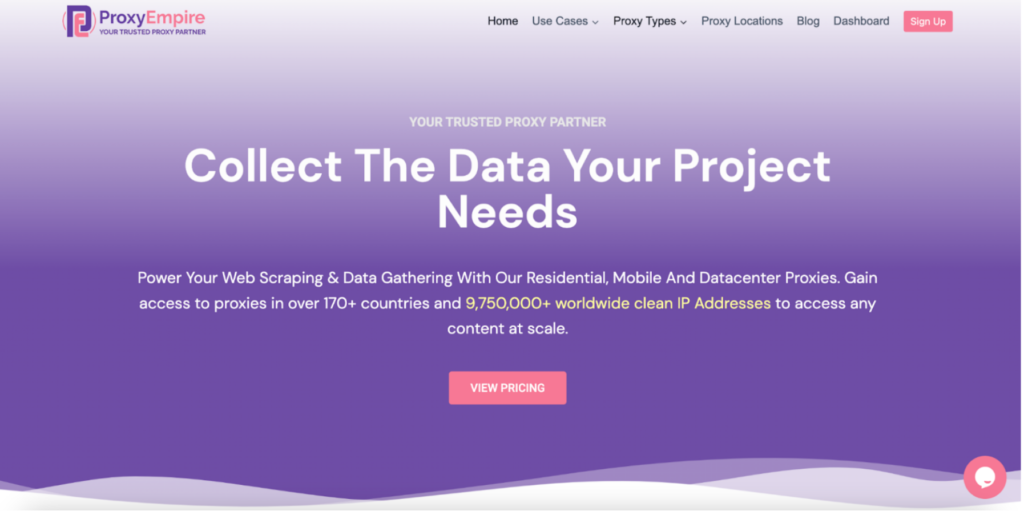Welcome to our in-depth review of residential proxy networks. Online privacy and security have become increasingly important in today’s digital age. One way to protect your identity and location while browsing the internet is by using a Residential Proxy Network. This review will compare and contrast some of the top Residential Proxy Networks on the market, examining factors such as reliability, speed, and cost. Whether you’re a business looking to protect your online assets or an individual concerned about online privacy, this review will provide valuable information to help you make an informed decision.
What is a residential proxy network?

A residential proxy network is a collection of IP addresses assigned to actual, physical devices such as homes and businesses. These IP addresses are provided by internet service providers (ISPs) and are used to connect devices to the internet. Residential proxies are different from data center proxies, which are IP addresses that are assigned to servers in a data center and are used for commercial purposes. Residential proxies are considered to be more reliable and less likely to be detected or blocked because they are associated with real, physical locations. They can be used for various purposes, such as online privacy and security, bypassing geographical restrictions, and scraping and gathering data.
How does it work?
Residential proxies are obtained through internet service providers (ISPs) by real people who have subscribed to their service. These subscribers are assigned a unique IP address that is associated with their physical location, allowing their devices to connect to the internet.
When a user connects to the internet through a residential proxy, their IP address is replaced with the IP address of the residential proxy. This masks the user’s proper IP address and location, making it more difficult for websites and online services to track and identify the user. This is useful for various purposes such as online privacy and security, bypassing geographical restrictions, and scraping and gathering data.
For example, if a user in the United States wants to access a website that is only available in Europe, they can use a residential proxy with a European IP address to access the website. This makes it appear as though the user is located in Europe, allowing them to bypass geographical restrictions. Similarly, if a user wants to scrape data from a website that has implemented IP blocking, they can use a residential proxy to avoid being detected or blocked.
It is important to note that while residential proxies provide a higher level of anonymity and are less likely to be detected or blocked, they are not entirely foolproof and can still be seen or blocked by advanced security measures.
Advantages of using a residential proxy network
Improved online privacy and security: By masking a user’s true IP address and location, residential proxies provide a higher level of anonymity and make it more difficult for websites and online services to track and identify the user. This can help to protect against online tracking, surveillance, and cyber attacks.
Ability to bypass geographical restrictions and access blocked content: Residential proxies can be used to access websites and online services that are restricted to specific geographical regions. By using a residential proxy with an IP address from the desired region, users can bypass geographical restrictions and access content that would otherwise be blocked.
Ability to scrape and gather data without being detected or blocked: Residential proxies can be used to scrape data from websites and online services without being seen or blocked. This is useful for businesses and organizations that need to collect large amounts of data for research, analysis, or marketing purposes.
Ability to conduct online activities without being traced back: Residential proxies, being associated with residential IPs, are less likely to be detected or blocked by online platforms, this means that users can conduct activities such as social media management, online advertising, and gaming without being traced back to their original IP address.
It is worth mentioning that many providers rotate the IPs at certain intervals and share IPs among multiple customers, making the detection even harder.
Use cases
-Web scraping and data gathering: Residential proxies are commonly used for web scraping and data gathering. By using a residential proxy, users can scrape data from websites and online services without being detected or blocked. This can be useful for businesses and organizations that need to collect large amounts of data for research, analysis, or marketing purposes.
-Online advertising and marketing: Residential proxies can be used to conduct online advertising and marketing campaigns. By using a residential proxy, users can target specific geographical regions and access websites and online services that are restricted to those regions. This can help to increase the reach and effectiveness of online advertising and marketing campaigns.
-Social media management and automation: Residential proxies can be used to manage and automate social media accounts. By using a residential proxy, users can access social media platforms from different locations and create multiple accounts without being detected or blocked. This can be useful for businesses and organizations that manage multiple social media accounts for different purposes.
-Online gaming and gambling: Residential proxies can be used to access online gaming and gambling websites that are restricted to specific geographical regions. By using a residential proxy, users can bypass geographical restrictions and access content that would otherwise be blocked. This can be useful for online gamers and gamblers who want to access the full range of games and betting options.
Top 5 residential proxy network
- ProxyEmpire
ProxyEmpire residential proxy network provides a vast selection of rotating residential proxies, with over 5.3 million options available. Their proxies are ethically obtained and equipped with advanced filtering options that enable you to target specific countries, regions, cities, and ISPs.
Their residential proxy plans come with VIP integration support, allowing for a smooth and easy setup process, and are suitable for a wide range of use cases that other proxy providers may not offer.
their residential proxies are compatible with all standard proxy protocols, ensuring that they can seamlessly integrate with any software stack you may have. Additionally, they also provide the option of static residential proxies, also referred to as ISP proxies, which allow you to maintain the same IP address for an extended period, usually a month or longer.
- WebScrapingAPI
At WebScrapingAPI, they offer a comprehensive solution for all your web scraping needs by providing both proxy services and web scraping services. With over 100 million proxies available, they have a wide range of options to choose from to suit any price point, including a free trial, business, or custom plans. Their 14-day free trial allows you to test different geolocation options, and after that, prices start as low as $20/month for 200,000 API calls, with the option of a limited free-forever package.
Their packages come with a certain number of allowed API calls, which you can use as per your requirement, and with unlimited bandwidth. Additionally, only successful calls are counted, so you can retry without worrying about running out of API calls.
WebScrapingAPI is more than just a proxy provider. Their API can scrape any webpage, handle CAPTCHAs, Javascript rendering, and request throttling, making it an all-in-one solution for your web scraping needs, and streamlining the entire process.
- Bright Data
Bright Data is a well-known platform and proxy service provider, with a reputation for being the largest data-collecting platform in the world. They offer a wide selection of over 72 million IP addresses and boast fast load speeds.
Their coverage is extensive, with a unique feature of providing 14 residential IPs even in North Korea. This is a highly uncommon and noteworthy feature.
In addition to the regular data center proxies options such as shared or dedicated proxies, Bright Data also offers dedicated residential IPs. While not as common, using dedicated proxies is recommended unless cost optimization is a primary concern.
Their ‘experimenting’ plan is the most budget-friendly option, with each GB of bandwidth costing $15. They also provide a flexible pricing calculator that allows you to create a customized plan based on your specific requirements.
- NetNut
NetNut may not have as many residential proxies as some other providers, with only 20 million available, but the infrastructure is solid and ensures that the IPs you have access to are always reliable and operational.
Their IPs are spread across around 50 different locations, giving you a range of geolocation options, although not as extensive as some other providers.
Their pricing model is unique, where clients can choose to pay based on bandwidth, similar to many other options, or based on the number of API calls for their API.
The starter plan costs $300 per month and includes 20GB of bandwidth, while the lowest request-based package, called Plus, costs a steep $7500 but offers 50M API calls.
- GeoSurf
GeoSurf is a residential proxy network that offers a wide range of options with over 2 million residential IP addresses in 192 countries, ensuring that geolocation will not be an issue.
A majority of their proxies, nearly a million, are located in Asia, making it an ideal choice for targeting websites hosted in that region.
They also provide a browser plugin called the GeoSurf Toolbar, which allows users to view online content through different IPs from various countries. This feature is especially useful for ad verification. The GeoSurf Toolbar is compatible with Internet Explorer, Chrome, Firefox, and Firefox for Mac.
The starter plan may be expensive, with a cost of $450/month for 38GB of traffic through residential IPs in +130 countries, it’s suitable for large scraping projects. For smaller projects, it’s recommended to consider less expensive providers.











